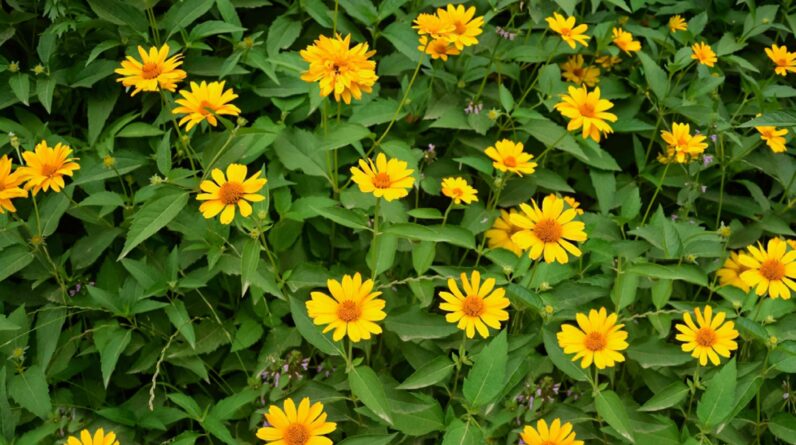
National Seed Swap Day is an annual event for gardeners to exchange seeds, promoting biodiversity and community engagement. This day encourages individuals to share their favorite plant seeds, allowing for the cultivation of various plants and the preservation of heirloom varieties.
Gardeners from all backgrounds can participate in this event, whether they are experienced or beginners. By exchanging seeds, participants have the opportunity to try new plants, foster connections with fellow gardeners, and contribute to sustainable agriculture practices. National Seed Swap Day is an occasion to celebrate the joys of gardening and contribute to the collective effort in preserving and expanding our seed diversity.
The Importance Of National Seed Swap Day
National Seed Swap Day is an important event that encourages biodiversity and seed preservation. By participating in seed swaps, individuals can contribute to the preservation of diverse plant varieties and genetic resources. This promotes resilience in agriculture, as a wider range of species and varieties can adapt to various environmental conditions and resist diseases. Such practices are vital for building sustainable food systems and protecting our planet’s ecosystems.
Furthermore, National Seed Swap Day fosters community engagement and connection. It brings together gardeners, farmers, and seed enthusiasts, creating opportunities for knowledge exchange and building strong local networks. Participants can share their experiences, learn from one another, and form lasting connections. These connections not only support the exchange of seeds but also foster collaborations in other areas, such as sustainable farming practices, conservation efforts, and community gardening initiatives.
| Benefits of National Seed Swap Day |
|---|
| Promotes biodiversity and seed preservation |
| Contributes to resilient and sustainable food systems |
| Encourages knowledge exchange and collaboration |
| Strengthens local communities |
How National Seed Swap Day Works
National Seed Swap Day is an annual event that encourages gardeners to exchange seeds, promoting biodiversity and fostering a sense of community within the gardening world. Participating in local seed swap events is a great way to meet fellow gardeners, learn from their experiences, and share your own. These events typically take place in community centers, farmers markets, or botanical gardens. You can bring your saved seeds or extra packets of commercially bought ones to exchange with others. It’s important to label your seeds properly with the name, variety, and any special instructions for growing. Additionally, there are online platforms available for seed exchange, allowing you to connect with gardeners from all over the world. These platforms provide a vast selection of seeds to choose from, increasing the variety of crops you can grow in your garden. So, whether you participate in local seed swap events or join online platforms, National Seed Swap Day offers a wonderful opportunity to expand your plant collection, connect with like-minded individuals, and contribute to the preservation of unique plant species through seed sharing.
Benefits Of Participating In National Seed Swap Day
Participating in National Seed Swap Day can bring several benefits to gardeners. One of the main advantages is gaining access to a wide variety of seeds. By swapping seeds with others, you can discover new and unique plant species that may not be available in your local stores. This allows you to experiment and diversify your garden, adding interest and excitement to your gardening experience.
Another advantage is that seed swapping is cost-effective. Instead of purchasing expensive packets of seeds, you can swap seeds with fellow gardeners for free or at a minimal cost. This not only saves you money but also promotes sustainable gardening practices.
Furthermore, participating in National Seed Swap Day contributes to promoting local food security. By swapping seeds, you support the cultivation of diverse crops, which helps in preserving and increasing biodiversity. This, in turn, enhances the resilience of local food systems and reduces dependence on mass-produced, genetically modified seeds.
Tips For A Successful Seed Swap Experience
To ensure a successful seed swap experience, it’s essential to choose high-quality seeds. Look for seeds that are fresh, viable, and disease-free. The overall health of the seeds is crucial for successful germination and plant growth. Check for any signs of damage, mold, or discoloration. Opt for reputable seed suppliers who offer a wide range of organic and heirloom varieties. Reading customer reviews can provide valuable insights into the quality and reliability of the seeds offered. Investing in high-quality seeds will increase the chances of having a thriving garden.
Storing and labeling seeds correctly is vital for their longevity and efficient organization. Keep seeds in a cool, dark, and dry place to maintain their viability. Consider using airtight containers or resealable bags to prevent moisture and pest damage. Label each seed packet with the plant name, variety, and the date of collection or purchase. Proper labeling helps to avoid confusion and ensures that you can identify and track the specific seeds easily. Additionally, it’s beneficial to include any relevant planting instructions or special notes on each packet. By storing and labeling seeds properly, you’ll be well-prepared for future gardening endeavors.
Connecting With Local Gardening Communities
National Seed Swap Day is an annual event that aims to connect gardening enthusiasts from all around the country. One of the best ways to get involved in this event is by joining local gardening clubs and organizations. These groups provide a platform for gardeners to share their knowledge, experiences, and even their seeds. Through these clubs, you can meet like-minded individuals who share the same passion for gardening. Attending gardening workshops and events is another great way to connect with your local gardening community. These workshops often focus on specific gardening techniques, and you can learn valuable tips and tricks from experienced gardeners. By participating in National Seed Swap Day and engaging with your local gardening community, you can expand your gardening knowledge and build long-lasting relationships.

Credit: blog.seedsavers.org
Seed Saving Techniques For Future Swaps
Seed saving is an important skill to learn for anyone interested in participating in seed swaps. With these basic seed-saving methods, you can start preserving and sharing your favorite plant varieties with others. The first step is to select healthy and mature plants to collect seeds from. Make sure to choose plants that show good traits, such as disease resistance or desirable taste. When collecting seeds, ensure they are fully dry before storing them. For long-term seed storage, it is best to keep them in a cool, dark, and dry place in airtight containers. Labeling each container with the seed variety and the date it was collected is essential for organization. Remember to check on your stored seeds periodically to ensure they have not been affected by pests or moisture. By mastering these seed-saving techniques, you can actively contribute to future seed swaps and biodiversity preservation efforts.
Sustainable Gardening Practices
National Seed Swap Day is a great opportunity for gardeners to come together and share their favorite seeds, promoting sustainable gardening practices. One important aspect of sustainable gardening is the use of heirloom and open-pollinated seeds. These types of seeds have been passed down through generations, ensuring their genetic diversity and preservation. By using these seeds, gardeners can protect and propagate rare and unique plant varieties. Another way to promote sustainability in gardening is by implementing organic gardening methods. This includes avoiding the use of synthetic fertilizers, pesticides, and herbicides, and instead opting for natural alternatives. Organic gardening not only benefits the environment by minimizing chemical pollution but also produces healthier and more flavorful produce. So, this National Seed Swap Day, let’s celebrate sustainable gardening by sharing and swapping heirloom and open-pollinated seeds and embracing the principles of organic gardening.
Showcasing Seed Swap Success Stories
National Seed Swap Day is an annual event that celebrates the exchange of seeds among gardeners. This initiative has gained popularity as it provides an opportunity for individuals and communities to diversify their gardens with unique and locally adapted plant varieties. Community gardens have particularly benefited from seed swaps, as members can acquire a wide range of seeds at no cost. As a result, these gardens are flourishing and contributing to the well-being of their neighborhoods. Individual gardeners are also sharing their experiences through seed swaps, allowing them to gain insights into different plant varieties, exchange gardening tips, and foster a sense of community and collaboration. Whether you are an experienced gardener or a beginner, participating in a seed swap is a fantastic way to discover new plants, support local biodiversity, and build connections with fellow gardeners.
Frequently Asked Questions For National Seed Swap Day
What Is National Seed Swap Day?
National Seed Swap Day is an event where gardeners exchange seeds with one another. It promotes seed diversity and allows people to try new varieties in their gardens. It is typically held in late January or early February.
How Does A Seed Swap Work?
A seed swap allows people to exchange seeds, offering a chance to diversify their gardens. Participants bring their extra seeds, share with others, and in return, receive different varieties. This helps promote biodiversity and ensures access to a wider range of plants.
What Is Seed Day?
Seed day is a special event where gardening enthusiasts gather to exchange seeds, share knowledge, and promote sustainability. It allows people to diversify plant varieties and foster a sense of community in the gardening world. Attendees can bring their own seeds to swap with others and learn about different gardening techniques.
What Are The Benefits Of Seed Swaps?
Seed swaps offer numerous benefits. They promote biodiversity and the preservation of heirloom varieties. They provide access to a wide range of plant species and strains. They encourage community engagement and knowledge sharing. They are cost-effective, helping gardeners expand their collections without spending money.
They also foster a sense of connection and empowerment among growers.
Conclusion
National Seed Swap Day is an exciting event where gardeners and plant enthusiasts come together to exchange seeds, knowledge, and grow a vibrant community. It’s a celebration of biodiversity, sustainability, and the joy of connecting with fellow green thumbs. By participating in this day, we not only expand our gardens but also support the preservation of heirloom plants.
So join the seed swap movement, and let’s sow the seeds of a greener and more connected world!





